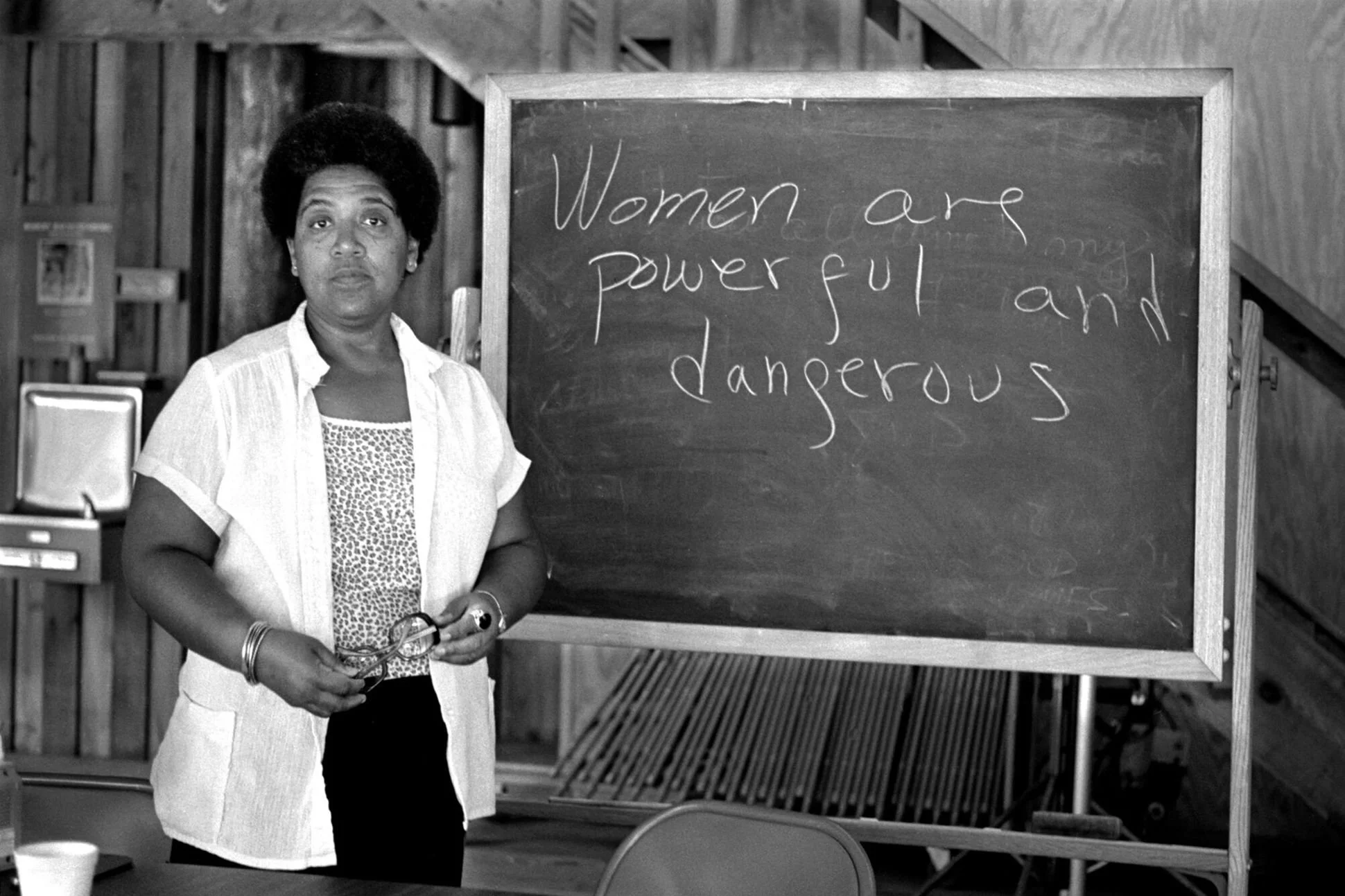The Bristorian delves into the untold stories of Black historical figures, cultures and events
Black history is not simply a month-long endeavour
Unsung Composers: Black Legacies in Classical Music
In this article, Jennifer Skipp explores the enduring yet overlooked legacy of Black composers, reflecting on the importance of their contributions to classical music from the Baroque era to the present day.
The Black Unicorn: Audre Lorde, Intersectionality and the Importance of Community
Eleanor Flower explores the life and impact of poet and academic Audre Lorde, the Black, Lesbian feminist whose fight against oppression continues over three decades after her death, in the resonant form of the Black Unicorn.
Dressed for Resistance: The Black Panther Uniform
In this article, Alice Peters explores the history of the Black Panthers iconic uniform, reflecting on the impact it has on Black activism today.
Social Class and Justice in Bessie Smith’s ‘Washwoman’s Blues’: How Jazz followed the Lower Class during the Harlem Renaissance.
Amanda Schlicht explores the conception of the Harlem Renaissance and how the sound and lyricism of jazz music acted as a form of powerful emancipation for Black voices.
Review: Bristol History Society’s Black History Panel - Reclaiming Narratives
Read Shujiao Guo’s review of the University of Bristol’s Black History Panel, discussing the theme of this year’s Black History Month: Reclaiming Narratives.
The Legacy of the Colston Statue in 2024
Molly Blay and Michaela Mamby explore the legacy of Edward Colston’s statue in 2024 and the exhibition which is now on display at Bristol’s M Shed Museum.
Angela Davis: A life and ideas
A summary of Angela Davis’ life and ideas, detailing her experiences of racism and sexism all over the world. A Marxist political activist and scholar born in Alabama, her early life shaped her commitment to social justice. She became a significant figure during her 1970 trial for alleged involvement in a plot to free the Soledad Brothers, which drew international attention.
Hannah More: The story of a Bristolian Abolitionist, advocate for the poor, and champion of female education
Does this late-eighteenth century Bristolian Abolitionist challenge our conceptions of feminism in the past? Jemima Sutton reflects on the life and work of Hannah More.
Works of Frantz Fanon
The Bristorian explores the work of Frantz Fanon: psychiatrist, diplomat, and scholar whose work has had a major influence on the study of colonialism and de-colonisation.
Interview with Dr. Richard Stone: Finding Thomas Colston, the less known brother of Edward
How his presence changes everything we know about Bristol’s involvement in the transatlantic slave trade…
St Pauls’- The evolution of one of Bristol’s most vibrant celebrations
Emily Brewster explores the origins of an iconic Bristol event and the important cultural impact of St Paul’s to Bristol as a city
Britain’s Black Miners: Unearthing an overlooked history
Coded as a Northern, white profession, the sacrifices of non-white miners are often forgotten in the history of labour activism and strikes. George Dean explores this overlooked history, emphasising the crucial research of Norma Gregory.
John Blanke - the Black Tudor
British Black History is often associated with the modern period. However, in an attempt to change that, the Bristorian explores one key Black figure from the Tudor period: John Blanke.
Review: “Slavery Obscured, Slavery Remembered: Remembering Histories of Enslavement in Bristol”
In a talk on the 28th October, Dr Richard Stone, Senior Lecturer at the University of Bristol, explored the legacies and histories of enslavement in the city. Dr Stone specialises in the histories and legacies of the Atlantic Slave Trade and has focused on Bristol’s role and history in this area.
The Black Panther Party and the Radical History of Self-Care
Whilst self-care as a concept has been misappropriated by health and wellness companies, its origins are firmly placed in the efforts of female Black Power activists. For Black History Month, Hope considers the Black Panther Party’s vital role in tackling health inequality, as well as the influence of queer Black women in creating the concept of self-care.
Book Launch: Unearthed by Claire Ratinon
Discussing race, environment and colonial history, Ratinon’s new book is part history, part memoir as she unpacks what it means to find belonging in nature as a person of colour. Following the launch of Unearthed, Teagan considers ideas of heritage, place, and what it means to truly ‘belong’ in an environment…
The Rebirth and Revival of the Black Harlem Renaissance
For Black History Month, the Bristorian remembers the Harlem Renaissance. From the aftermath of the First World War until the mid-1930s, the Harlem neighbourhood in New York enjoyed an unprecedented boom in social and artistic African American culture, a golden age that echoed from Los Angeles to Paris.
Looking Back to Look Forward: Comparing the Civil Rights Era to the Black Lives Matter Movement
The Bristorian takes a look at what can be learnt by exploring the similarities and differences between the Civil Rights and Black Lives Matter movements
Internationalising the Bristol Bus Boycott
The Bristol Bus Boycott was part of a wider struggle by people of colour against racial injustice in Bristol and in Britain. In this article, The Bristorian seeks to internationalise the boycott, highlighting its global context amidst the civil rights movements that came to define the 1960s.
Three Lessons to Learn from the Haitian Revolution
In 1789, Saint-Domingue was the jewel in the crown of the French colonial administration. It was the richest colony in the world, exporting a significant share of the world’s sugar, coffee, and cotton. Such status was, however, entirely reliant on the slave trade, as 500,000 of its 550,000 inhabitants were plantation slaves, subject to the dominance of 25,000 colonists. By 1804, the slave revolution had established the Haitian state, and with it, the total metamorphosis of social, political, and economic life.
In this piece, The Bristorian explores the lessons that emerge from the world’s first successful slave revolt, and suggests how we can learn from those lessons in today’s rapidly changing world.




















